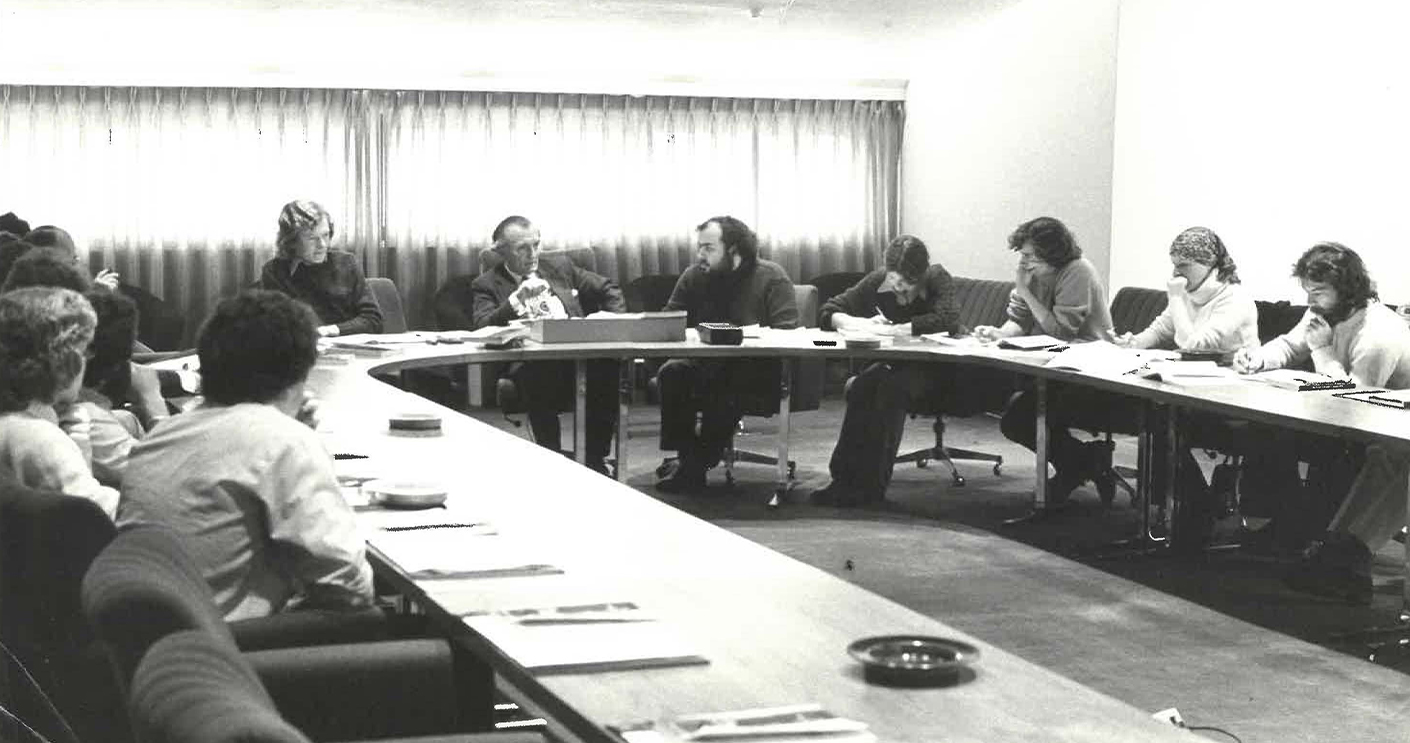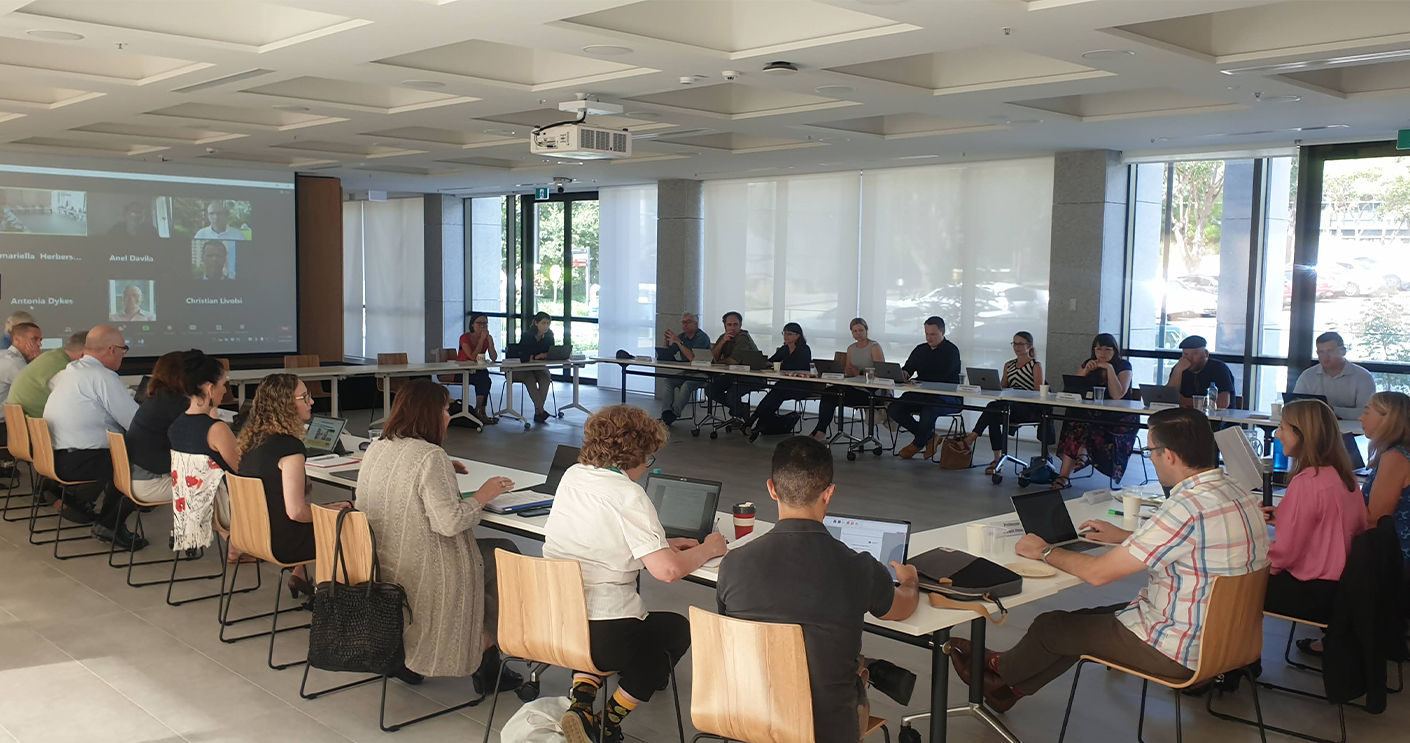Ahead of the upcoming Academic Senate elections, we ask the question ‘what is Academic Senate?’
In simple terms, it is the University’s academic governing body comprised of behind-the-scenes changemakers who have been positively impacting teaching at our University since the 1970s.
Academic Senate has both student representatives and staff from each faculty who work together on key projects designed to strengthen our teaching and student experience at the University. For example, the Senate recently completed a review of the Indigenous Connected Curriculum to help enable delivery across the full coursework suite.

Pictured: Emma Jackson and Professor Judith Dawes
Emma Jackson, a student from the School of Psychological Sciences and Professor Judith Dawes from the School of Mathematical and Physical Sciences have completed two and three terms respectively on the Academic Senate. They share what it is like to be a member.
Jackson says, “I wish more people were aware of the kind of work that Senate does and were confident to approach Senate members to raise or discuss a range of issues,”.
Dawes echoes that, “The scope of Senate’s activities is very broad – advising the Vice Chancellor and Council about Academic Matters and more. I have continued to be impressed by the many issues that lie in Senate’s purview, and the wide range of academic activities that are undertaken across the University.”
Expanding on what falls under the Academic Senate’s jurisdiction, Jackson says “generally, Senate is interested in issues regarding academic activities that impact the whole university. Academic activities include teaching, student experience, and research. One good example of a Senate issue was the changes to extensions that occurred during Covid-19. The issue of how extensions were granted was discussed at length to ensure students were not disadvantaged during lockdown. Then, after lockdown, Senate was able to learn from these changes to consider how extensions could work in the longer term and make positive change.”

Pictured: Academic Senate meeting in 1976
What happens on the ground in an Academic Senate meeting? The Senate meets seven times a year on Tuesday mornings for two and a half hours in person or on zoom. Key agenda items are set out in reports circulated before the meeting which are often accompanied by short videos and there are verbal reports from the Vice Chancellor, the Deputy Vice Chancellor (Academic) and the Chair of Senate. Much of the meeting is occupied with discussion of key agenda items, with questions from the floor and responses from the person presenting the item. There are often lively discussions with many Senate members raising insightful ideas and everyone aiming to consider the implications of the issues. Voting is done by show of hands and informal discussions continue during tea-break. The ‘Senate in Brief’ summary lists Senate decisions. Contentious items may be sent back for revision.
Dawes and Jackson strongly encourage others to consider joining the Academic Senate.
Dawes says, “I have really enjoyed connecting with members of Senate from across the campus and gaining a broader perspective of the University. During my period as a member, I have contributed to several Senate committees and working groups, such as the Purpose and Composition of Academic Senate working group, the Equity Diversity and Inclusion working group, the Academic Senate Standing Committee, and the Review of the Shared Model of Academic Governance working group
“As a member of Senate, you are asked to make decisions from the perspective of the good of the whole university, rather than “wearing a hat” as a member of a department or faculty. I encourage anyone interested in Senate to request to attend a Senate meeting as an observer,’ she suggests.
Jackson says, “Senate is very rewarding work. I was involved in Senate working groups and able to make active contributions to decisions and important changes at the University. Senate is also a lovely way to get to know other members of the Macquarie community – there are so many engaged and passionate people and getting to know these people has been one of the most rewarding parts of my Senate time.
Nominations for Academic Senate open 31 August. Find out more about Academic Senate and apply to join here.


 Back to homepage
Back to homepage
Comments
We encourage active and constructive debate through our comments section, but please remain respectful. Your first and last name will be published alongside your comment.
Comments will not be pre-moderated but any comments deemed to be offensive, obscene, intimidating, discriminatory or defamatory will be removed and further action may be taken where such conduct breaches University policy or standards. Please keep in mind that This Week is a public site and comments should not contain information that is confidential or commercial in confidence.